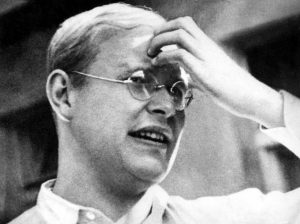


Trafficking in human organs is, sadly, one of the fastest growing criminal activities today. Often, victims are told they have an illness that requires the removal of a kidney or are offered large sums of money, which they often never collect.
Kidneys are a popular item for trafficking, partly because of demand and partly because it does not require the death of the “donor.” The United Nations is now investigating charges that ISIS is trafficking in organs.
The Iraqi ambassador, Mohamed Alhakim, on Tuesday urged the Security Council to investigate the deaths of 12 doctors in Mosul, Iraq. He said they were killed after refusing to remove organs from bodies.
‘Some of the bodies we found are mutilated … that means some parts are missing,’ he told reporters, adding that there were openings in the back of the bodies where the kidneys would be located.
The plunder of bodies for usable organs and tissues is widespread, according to Nancy Scheper-Hughes, director of Organs Watch, a University of California, Berkeley-based documentation and research project.
‘Organ theft during wars, civil wars, dirty wars, wars involving undisciplined armies is not mon,’ Scheper-Hughes, chair of Berkeley’s doctoral program in medical anthropology, said in an email.
Last week, Great Britain reported the discovery of a 12-year-old boy who had been smuggled into the country for the removal of his organs. In China, a 6-year-old boy had his eyes removed by traffickers.
Children are most clearly at risk due to age, and it is not mon for parents to sell their own children into trafficking due to poverty. Michelle Beshears, professor of criminal justice at American Military University, says that demand for healthy organs in the developed world is driving trafficking.
The need far outweighs the current supply of legally obtained organs. In fact, it is estimated that approximately 18 people die each day while waiting for an organ transplant in the United States alone. However, the issue of supply and demand for organs is not limited to the U.S.This is an international problem that stems from the fact that there are just not enough donors to supply people in dire need of a life-saving organ transplant.
The laws in the United States (as well as many countries around the globe) prohibit the sale of organs. However, these laws seem to only fuel profiteers in the black market organ trade. Many patients are willing to turn to the black market and pay big money for a life-saving organ. Why not?
In reality, the law provides little deterrent to a patient who will likely die without the organ. And, for those impoverished people around the world who are in desperate need for money, they see the selling of their organs as the answer to their prayers.
In 2000, the United States passed the Trafficking Victims Protection Act, but it does not cover organ trafficking. Beshears says that prosecuting these cases is not a priority, despite the fact that organ trafficking preys on the poor, the young and the uneducated. The cases mentioned above are not isolated; these types of situations are ing far mon. Children are increasingly ing victims of organ trafficking.
In fact, “transplant tourism” is now a phrase that monly used for people in the developing world who, for whatever reason, choose not to wait on a legitimate transplant list, but instead travel to a developing country to receive an organ. Often, this is done in a “don’t ask, don’t tell” atmosphere.
Any type of human trafficking is an offense to human dignity. However, it is especially horrifying to risk the health and life of a helpless child.









